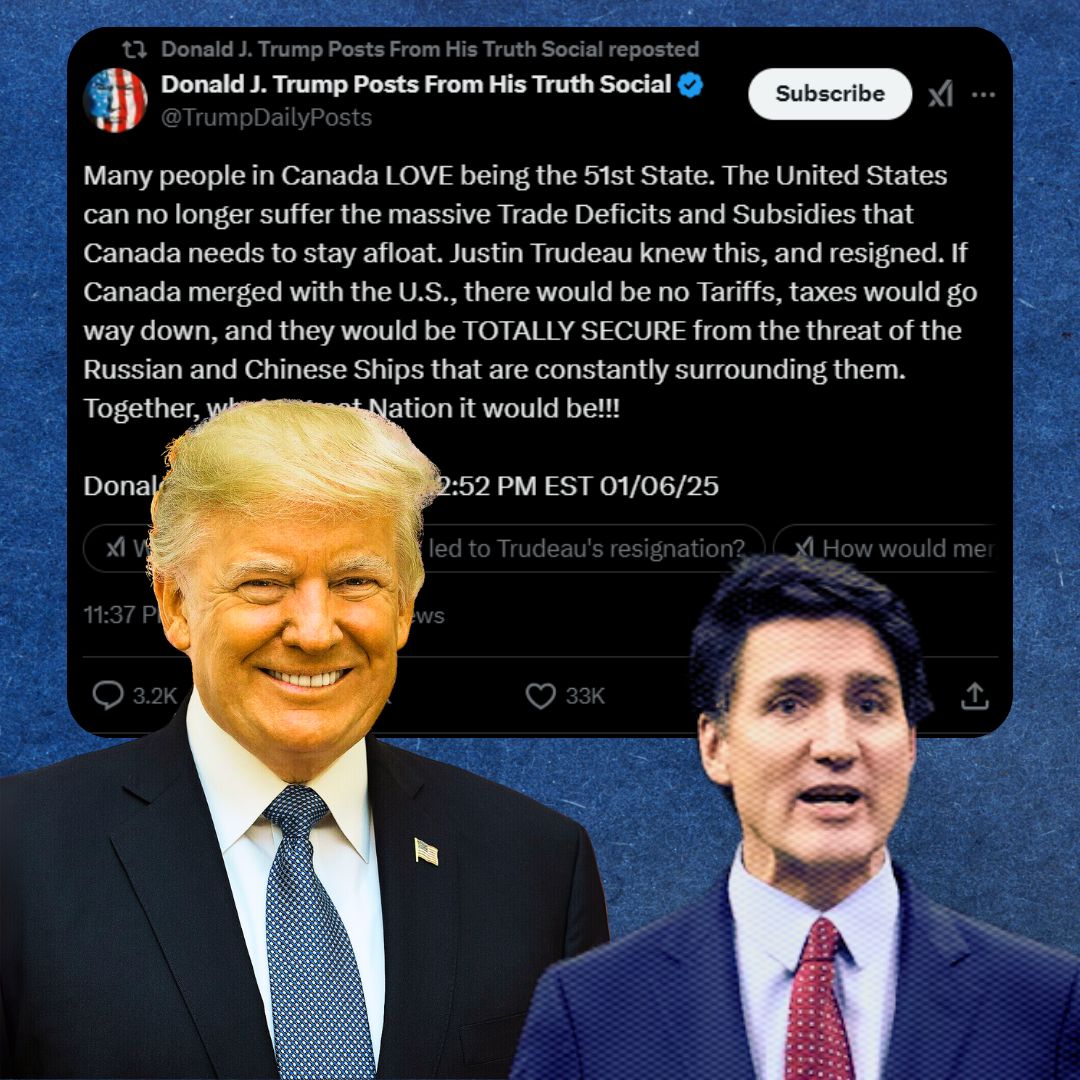In a surprising turn of events, US President-elect Donald Trump called for a merger between the United States and Canada just hours after Canadian Prime Minister Justin Trudeau announced his resignation amid declining popularity. Trump’s proposal, which he claims would eliminate tariffs and enhance security, has sparked discussions about national identity and sovereignty.
Trudeau, who will remain in office until a new leader is chosen, has faced mounting pressure from his Liberal Party due to his government’s performance. While Canadian officials have remained largely silent on Trump’s comments, the implications of such a merger raise significant questions about the future of both nations.

Trump’s Bold Proposal After Trudeau’s Resignation
In a series of statements made on social media platforms, Trump reiterated his long-standing belief that Canada should become the 51st state of the United States. He said that this merger would not only eliminate tariffs but also significantly reduce taxes for citizens of both nations. “Many people in Canada LOVE being the 51st State,” Trump asserted, suggesting that such a union would create a more robust economic and political alliance. He further claimed that a united North America would provide enhanced security against perceived threats from Russian and Chinese naval forces.
Trump’s comments come at a time when Canada is grappling with various challenges, including economic instability and rising crime rates related to drug trafficking. He threatened to impose tariffs on Canadian goods if the country does not take immediate action to address issues such as illegal migration and drug-related violence crossing their shared border. This statement has raised eyebrows among political analysts who question the feasibility and desirability of such drastic measures.
Context of Trudeau’s Departure
Trudeau’s resignation announcement follows a period of declining approval ratings and increasing dissatisfaction within his party. The Prime Minister stated he would step down once the Liberal Party elects a new leader, emphasising the need for fresh direction as general elections approach later this year. His tenure has been marked by various controversies, including criticism over economic management, environmental policies, and governance challenges during the COVID-19 pandemic.
The political landscape in Canada is now uncertain, with many citizens expressing concern about who will lead the country through these turbulent times. Trudeau’s departure has prompted discussions about potential successors and what their leadership might mean for Canada’s relationship with the United States. The timing of Trump’s proposal adds another layer of complexity to an already challenging political environment.
The Logical Indian’s Perspective
The idea of merging two sovereign nations raises profound questions about national identity, governance, and cultural integrity. While some may find Trump’s vision appealing, it is essential to consider the implications such a merger would have on the unique identities and values that define both Canada and the United States. The Logical Indian believes in fostering constructive dialogue that respects each country’s autonomy while encouraging collaboration on shared challenges such as trade, security, and climate change.
In an increasingly interconnected world, it is crucial to engage in discussions that promote understanding rather than division. How can we encourage conversations that respect national identities while exploring avenues for cooperation? We invite our readers to reflect on this provocative proposal and share their thoughts on how best to navigate the complexities of international relations in today’s climate.












